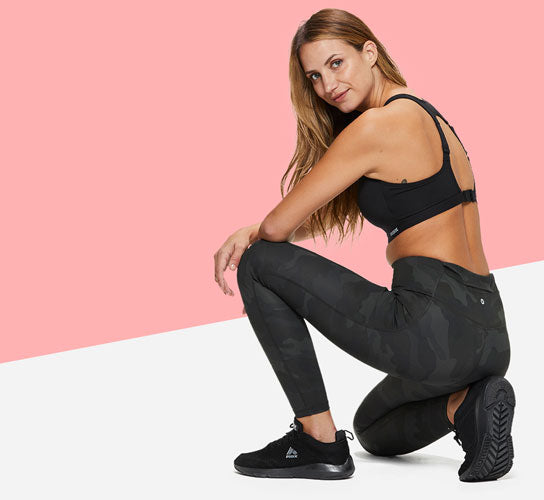The process of becoming an expert Yogi is a slow and gradual one. Mastering the subtleties of yoga poses is vital in taking full advantage of the flexibility, stability, and balance benefits that they can provide.
Yoga masters Randy Aaron and Valerie Verdier of Modo Yoga NYC have been gracious enough to help us come up with some useful tips to keep in mind when practicing basic yoga poses. Randy emphasizes a healthy degree of self-love in his practice, thoughtfully and mindfully taking care of individual needs both in and out of the studio. Valerie is a firm believer in people's ability to consistently and continually grow. She sees fluctuations within the daily routines as lessons that can foster self-improvement, rather than liabilities that get in her way. An empowering instructor, Val lovingly guides students through dynamic poses with an encouraging smile.
Here are 8 basic yoga poses demonstrated by Randy and Valerie, paired with a few tips to help you perfect those finishing touches. Namaste!
Downward Dog

- Have your head and neck be in the same line as your spine.
- Balance the weight between your arms and your legs. If you feel it more in one than the other, try going into a plank and then back into downward dog.
- A common mistake is compromising the length of your spine for the stretch in the hamstrings - be sure that your sit bones and tailbone are pulled upward and out. Sometimes, bending your knees or being on your toes can help.
Extended Triangle

- Make sure the toes of your front foot are pointing straight forward, towards the short edge of the mat, and the toes of your back foot are pointing perpendicular, towards the long edge of the mat. Your right and left heels should be aligned.
- Rotate your torso so that your right and left rib cage are aligned (as if your back were against the wall).
- A common mistake is resting the hand on the knee - try to avoid doing this by lifting upward and outward, as you want as little pressure on the knee joint as possible.
Marichi's Pose

- Keep your eye contact over your left shoulder to ensure a full stretch of the right side of the neck and back.
- Twist from the bottom up.
- A common mistake is to let the shoulders scrunch up near the ears - stay relaxed to allow a fuller range of motion.
Warrior II

- Press equally through each foot, as if you're pulling the yoga mat apart.
- Raise your arms to shoulder height, parallel to the floor and directly over your legs with palms facing downward.
- A common mistake is to lean towards the front leg - keep your torso and neck at a right angle to the floor.
Reverse Warrior

- When transitioning into this pose from Warrior II, don't adjust the positioning of your lower body.
- Move gracefully and slowly, as if you're stuck between two walls.
- A common mistake is to bend the back too severely - if you feel a strain on your lower back, gently lift out of the bend to ease the stress on your the spine.
Plank

- Flex your abdominal muscles toward your spine to avoid your lower back from bearing the whole burden of the stretch.
- Push the fronts of your thighs straight upwards and your tailbone back towards your heels.
- A common mistake is allowing the hips to slump too low - it is crucial to maintaining a straight line from the shoulders to the feet.
Upward Dog

- Keep your thighs and knees off of the ground to fully engage the butt and hamstrings.
- Look forward and keep your chest upright, as if your sternum is being held up by a string in the ceiling. Don't bend backward!
- A common mistake is hanging on your arms. Let your upper body hold itself up by drawing your shoulders away from your ears, to ensure you're not hanging from them.
Wheel Pose

- Lift up through your hips and activate your inner thighs. Holding a block between your legs can help.
- Keep the neck and armpits long and relaxed, letting gravity apply the stretch.
- Imagine your body creating the shape of an upside-down "U," but avoid becoming a "V" to eliminate the risk of problematic lower back compression.
Enjoy your practice. Happy International Yoga Day!


